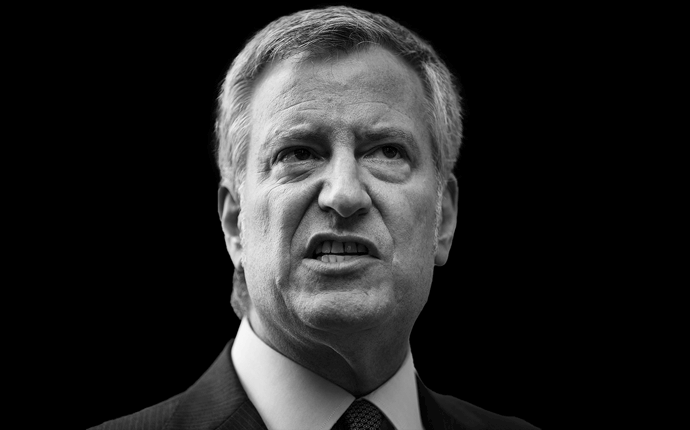When Mayor Bill de Blasio publicly rejected a Crown Heights residential project that would cast shadows over the Brooklyn Botanic Garden, jaws dropped in real estate circles.
Never before had the mayor openly opposed a rezoning pending before the City Council. And never had he prioritized neighborhood character over affordable housing.
Real estate was already looking at 12 more months of toothlessness from an allegedly pro-development mayor. Now, it appears that he’s trying to grow fangs the only way he can: by opposing the industry.
In February, de Blasio had given a long explanation of his support for the project, developed by Bruce Eichner’s Continuum Company, when a caller to “The Brian Lehrer Show” asked him about it. The shadows would not destroy the garden, he said, and providing affordable housing was far more important than aesthetic considerations about the buildings being too big.
“I don’t think it ruins the garden forever. I just don’t,” the mayor said at the time. “I would love it if we could have a city that could be a city for everyone and affordable and we could keep some of the exact scale and aesthetics we had previously … but we’re in this new world.”
Then, last week, he said Eichner’s two-tower project would harm the Brooklyn Botanic Garden’s research and educational work and was “grossly out of scale with the neighborhood.” He made no reference to his February comments about how never changing the city’s scale makes it unaffordable.
What happened?
Read more


Let’s go back 10 months. Soon after the mayor answered the caller’s question, his staff claimed that he had confused the project with another one on Franklin Avenue approved in December 2018.
That’s plausible. It certainly would not be the first time the mayor screwed up and failed to admit it. (Remember the curfew pitting cops against protesters? He’s still defending that.)
Even more shocking to the land-use community was that de Blasio took a public position at all. As he explained repeatedly just a few months ago when asked about Industry City’s rezoning, he does not comment on private applications before the City Council. But he did exactly that with Eichner’s.
The protocol when a mayor objects to a project is to have his planning chief tell the developer early, behind the scenes, so builders don’t waste years and millions of dollars while getting beat up by opponents over a hopeless endeavor. No one knows why de Blasio did not do that this time, but clearly he wanted to get credit for chopping down the Crown Heights towers rather than defer to the local Council member, Laurie Cumbo.
Most concerning for developers and rent-burdened New Yorkers is that de Blasio prioritized building scale over affordable housing. That went against everything he has been saying for years, including his February comments, even if they were about a different project.
Think back to 2003, when the Atlantic Yards megaproject was proposed in Brooklyn. Eminent domain was going to be used to raze occupied buildings to construct what is today the Barclays Center. Opposition was intense and dogged. But as the local City Council member, de Blasio supported it because, as he said repeatedly, the development also included lots of affordable housing. He did this despite the project being steered around him in favor of a state approval process.
In the Crown Heights project undercut by de Blasio this week, half of the project’s apartments would have been affordable — twice as many as the mayor’s own housing policy requires.
Several theories have emerged to explain his 180. One is that de Blasio will be returning to Brooklyn after he leaves office, and this was a pure NIMBY move. Another is that he didn’t want to impair his wife Chirlane McCray’s political future in Brooklyn.
A more likely explanation is that the mayor is trying to salvage some popularity in the wake of his awful year, and siding with locals and garden lovers against a developer is a way to do that.
In the end, Eichner will agree to shrink his 39-story towers, de Blasio will throw in some subsidy for affordability and the mayor will get cheers instead of jeers. Plausible outcomes? Two of them are.
